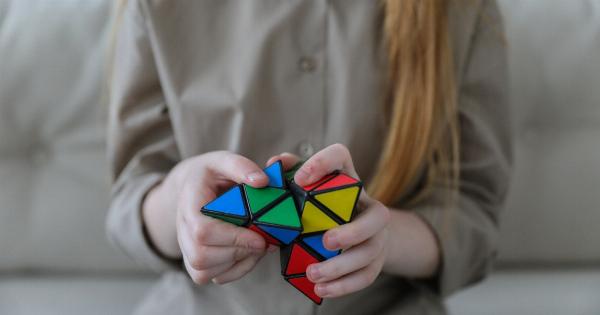In today’s fast-paced and technology-driven world, it is no secret that children are increasingly exposed to various forms of stress and anxiety.
From academic pressures to social expectations, the challenges faced by young ones can often be overwhelming. However, there might be a solution that not only provides entertainment but also promotes emotional well-being in children – wise games.
Understanding Childhood Anxiety
Anxiety in children is a legitimate concern that needs to be addressed. Childhood anxiety disorders can manifest in different ways, such as separation anxiety, generalized anxiety, or specific phobias.
These conditions can significantly impact a child’s overall mental health and development. Therefore, it is crucial to find effective methods to alleviate anxiety in young minds and help them navigate their emotions.
The Rise of Wise Games
In recent years, digital games that explicitly target children’s anxiety and stress levels have gained popularity.
These wise games offer a unique blend of entertainment and therapeutic benefits, making them an ideal tool for addressing childhood anxiety. Unlike conventional video games, wise games are specifically designed to promote emotional well-being and help children manage their anxieties.
The Therapeutic Impact of Wise Games
Wise games employ various strategies to combat children’s anxieties effectively. Here are some ways in which they can positively impact a child’s mental well-being:.
1. Emotional Awareness and Expression
Wise games often feature characters and storylines that encourage emotional awareness and expression. By engaging with these games, children have the opportunity to identify and comprehend different emotions.
Moreover, they can learn healthy ways to express their feelings, which can be instrumental in managing anxiety.
2. Cognitive Distraction
Anxiety can be consuming and overwhelming for children. Wise games provide a cognitive distraction by diverting their attention from anxious thoughts and emotions.
By immersing themselves in the game’s challenges and tasks, children can experience temporary relief from their anxiety symptoms.
3. Skill Building
Wise games often incorporate skill-building elements, such as problem-solving, decision-making, and critical thinking. By engaging in these activities, children can develop important coping skills that can contribute to reducing anxiety.
These skills can extend beyond the game and be applied to real-life situations, fostering resilience and emotional well-being.
4. Relaxation Techniques
Some wise games integrate relaxation techniques, such as guided breathing exercises or mindfulness activities. These features help children learn specific techniques to manage their anxiety on their own.
By practicing relaxation techniques within the digital game, children can acquire valuable self-regulation skills that can be beneficial throughout their lives.
5. Positive Reinforcement
Wise games often incorporate positive reinforcement mechanisms, such as rewards or encouraging messages. By receiving positive feedback during gameplay, children can experience a boost in their self-esteem and self-confidence.
This positive reinforcement can counteract the negative thoughts and self-doubt often associated with anxiety.
Choosing the Right Wise Games
While wise games offer an innovative approach to tackling childhood anxiety, it is important to choose the right games for each child’s unique needs. Consider the following factors when selecting a wise game:.
1. Age Appropriateness
Ensure that the game’s content, themes, and mechanics are suitable for your child’s age group.
Different age ranges may require distinct approaches, and choosing an age-appropriate game increases the likelihood of its effectiveness in addressing anxiety.
2. Evidence-Based Design
Look for games that are backed by research or developed in collaboration with mental health professionals.
Evidence-based design ensures that the game’s therapeutic strategies align with established principles of anxiety management, maximizing its potential benefits.
3. User Experience and Interactivity
Consider how the game engages children and facilitates interaction. Games with intuitive controls, engaging narratives, and appealing visuals are more likely to capture a child’s attention and provide an enjoyable gaming experience.
4. Support and Guidance
Check if the game offers built-in support features or guidance for parents and caregivers.
Having access to resources that explain the game’s therapeutic objectives and provide suggestions for reinforcing its benefits in daily life can be invaluable.
Building a Healthy Relationship with Wise Games
While wise games can be a powerful tool in helping children manage anxiety, it is crucial to prioritize a healthy relationship with these digital interventions:.
1. Balanced Usage
Setting reasonable limits on the amount of time children spend playing wise games is important. Encourage a good balance between gameplay and other activities to ensure overall physical, mental, and socio-emotional well-being.
2. Open Communication
Establish open lines of communication with children about their experiences with wise games. Encourage them to express their emotions and thoughts surrounding anxiety and gaming. Be available to address any questions or concerns they may have.
3. Supplement with Other Strategies
Wise games should be seen as one component of a comprehensive approach to managing childhood anxiety. Encourage children to engage in other anxiety-reducing activities, such as physical exercise, creative outlets, or spending time in nature.
4. Professional Guidance
If a child’s anxiety persists or worsens despite the use of wise games, it is essential to seek professional guidance.
Mental health professionals can offer additional strategies tailored to the child’s specific needs and provide necessary support to both the child and their caregivers.
The Future of Wise Games
As technology continues to evolve, the potential for wise games to make a positive impact on children’s anxiety and well-being grows exponentially.
Through advancements in virtual reality, artificial intelligence, and other emerging technologies, these games have the potential to become even more immersive and tailored to individual needs.
The Power of Wise Games
Wise games offer a unique and effective way to consume children’s anxieties. By combining entertainment with therapeutic benefits, these games can play a significant role in promoting emotional well-being in young ones.
While they are not a cure-all solution, wise games have the potential to be a valuable tool in managing childhood anxiety and empowering children to navigate their emotions with confidence.






























